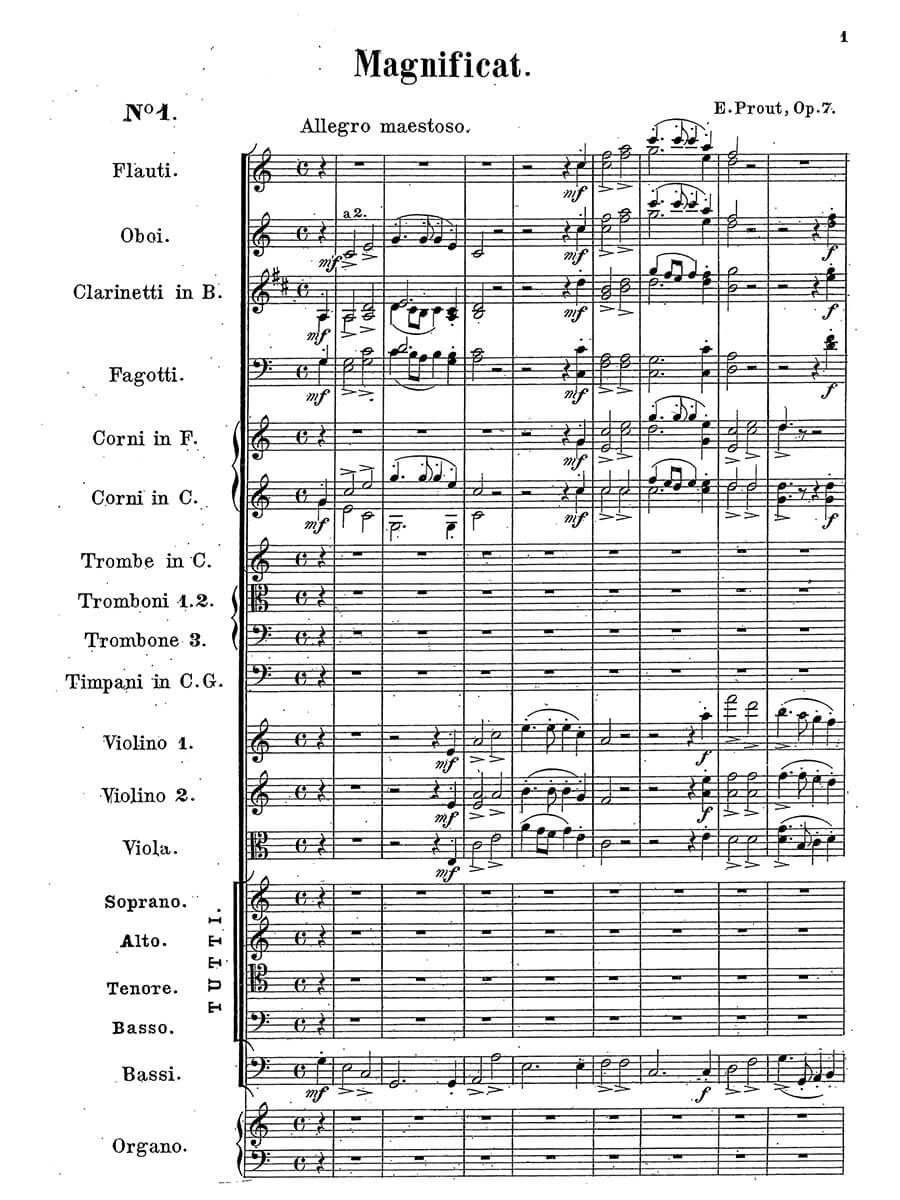Magnificat Op. 7 for solo voices, chorus & orchestra
Prout, Ebenezer
27,00 €
Ebeneezer Prout – Magnificat, op. 7 for solo voices, chorus & orchestra
(b. 1 March 1835, Oundle; d. 5 December 1909, London)
Preface
Ebeneezer Prout is best remembered today as the Victorian musicologist who produced the ‘standard’ English version of Handel’s Messiah that has predominated – at least in amateur circles – until the present. But he was much more than that, being foremost among the theorists who helped to create the musical environment that brought forth Parry and Stanford, Bantock and Vaughan Williams, Holst and Bax.
He graduated from the University of London, becoming a member of the Royal College of Organists. He was Professor of Harmony and Counterpoint at the Royal Academy of Music (pupils included Henry Wood, Eugen d’Albert, and Edward German) and Professor of Music at Trinity College, Dublin. He was also a professor at the Guildhall School of Music and edited many new editions of works by Handel and other Baroque masters, being especially keen on Bach.
His career as a (very conservative) composer was less successful, although he achieved many performances, especially at the Crystal Palace concerts. His output includes four symphonies, two organ concertos and a clarinet concerto, and much chamber music, but he is best remembered for his choral works. There is an early Requiem and several cantatas, but mostly they are of medium length. He made four settings of the Magnificat, of which this is the earliest, being from 1875. It was first performed at the Crystal Palace on 15 January 1876, and the critic of the Musical Times wrote of it: “Though not strictly original in detail, this service, like all Mr Prout’s compositions, is very cleverly wrought, and, what is of paramount importance, is always in true keeping with an intelligent reading of the words”.
After his death, the Musical Times published a pen-portrait of Ebeneezer Prout: “Punctuality was one of his virtues, and he planned his work with marvellous exactitude. He would tell you in March all that he meant to accomplish in the next few months, and on what day in July and by what train he would depart for his holiday, and it all came off. He was a rare linguist, a chess player, a great smoker, a raconteur of exceptional interest, somewhat of a Bohemian in dress, and his whole life was an inspiration to his great circle of friends”.
Phillip Brookes, 2021
For performance material please contact Stainer & Bell, London. Reprint of a copy from the library of Conservatoire de Musique de Genève, Geneva.
| Score No. | 4520 |
|---|---|
| Edition | Repertoire Explorer |
| Genre | Choir/Voice & Orchestra |
| Size | |
| Printing | Reprint |
| Pages | 94 |
